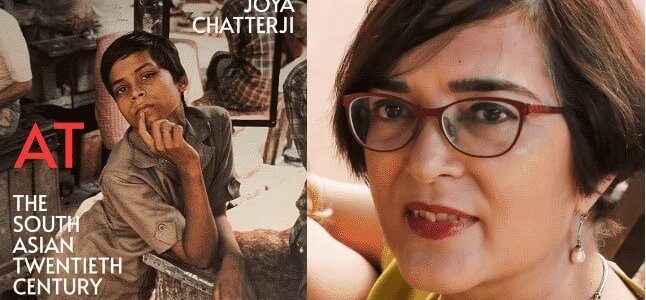RAS Fellow Joya Chatterji wins the Wolfson History Prize 2024
A few weeks ago we announced that Asian historians, Joya Chatterji and Nandini Das were both shortlisted for the Wolfson History Prize 2024. It is our great delight to inform you that earlier this week, RAS Fellow Joya Chatterji was announced as the winner for her book, Shadows at Noon. Joya has been a fellow of the Society since 2011 and we send her many congratulations on winning this prestigious award. Defined as a genre-defying history of South Asia, the judges praised the way in which Shadows at Noon pushes back against standard narratives of the subcontinent that emphasise the differences between India, Pakistan, and Bangladesh, and instead seeks to highlight what unites these three nations and their peoples. It is an unique academic work, interwoven with Chatterji’s own reflections on growing up in India, which adopts a conversational writing style, and takes a thematic rather than chronological approach. Everyday experiences of food, cinema and the household are given an equal footing to discussions about politics and nationhood.
The distinguished judging panel, comprising historians Mary Beard, Richard Evans, Sudhir Hazareesingh, Carole Hillenbrand, Diarmaid MacCulloch and chair David Cannadine, stated that the book was: ‘A captivating history of modern South Asia, full of fascinating insights about the lives of its peoples. Written with verve and energy, this book beautifully blends the personal and the historical.’
David Cannadine added, ‘Shadows at Noon is a highly ambitious history of twentieth-century South Asia that defies easy categorisation, combining rigorous historical research with personal reminiscence and family anecdotes. Chatterji writes with wit and perception, shining a light on themes that have shaped the subcontinent during this period. We extend our warmest congratulations to Joya Chatterji on her Wolfson History Prize win.’
Paul Ramsbottom, Chief Executive of the Wolfson Foundation also added his praise: ‘For over fifty years, the Wolfson History Prize has celebrated exceptional history writing that is rooted in meticulous research with engaging and accessible prose. Shadows at Noon is a remarkable example of this, and Joya Chatterji captivates readers with her compelling storytelling of modern South Asian history.’
Full details about the competition and the award ceremony can be found on the Wolfson History Prize website from which the quotes and picture were taken.
~ ~ ~ ~ ~
In other news, on Thursday November 28th, Mansi Rao lectured on Dining tables on streets and carpets on floors – A study of vernacular furniture in north-west India. Mansi S Rao, Collection Curator at the South Asia Collection, Norwich, drew on fieldwork experiences to present a variety of vernacular furniture and everyday objects and include the voices of the people who continue to make and use such furniture and for whom such items are an integral part of their everyday life. The South Asia Collection Museum in Norwich holds more than 250 vernacular furniture items and related objects from north-west India. However there had been little research undertaken to aid with identifying and representing these items. Emerging from this need to contextualise the collection, a collaborative project, Vernacular Furniture of North-West India, was conducted with the Design Innovation and Craft Resource Centre (DICRC), CEPT University, India. The project, undertaken in three phases from 2015 – 2021, aimed to identify, map, document and study vernacular furniture that both traditionally and currently is an inherent part of day-to-day life in an Indian household. The project is the first of its kind. For those who missed the talk but would like to learn about this innovative research, the lecture is now available on our YouTube channel.
Yesterday evening, Thursday 5 December, the Society welcomed Dr Tom Young who lectured on British Art and the East India Company, c.1813–58. This interesting talk gave insight into how new technologies such as lithography, periodicals and steam navigation helped in the destabilisation of the East India Company. The talk also featured amateur sketching among many East India Company employees and below is an example from our own collections:

Next week, on Thursday 12 December, 6.30 pm, we welcome Professor Prem Poddar who will lecture on China in India: from Shangri-La to Kalimpong. This lecture will address some of the pivotal moments in Prem Poddar’s new book, Through the India-China Border: Kalimpong in the Himalayas (Cambridge University Press) to shed new light on the ‘Tibet question’ in China-India relations. We hope that you will all be able to join us either in person at Stephenson Way or online. Please contact Matty Bradley (mb@royalasiaticsoceity.org) to access online.
Nancy Charley, 6 December 2024.

